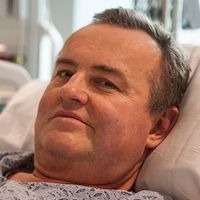ICYMI: The 10 Best Health Stories from May
The MD Magazine editors rounded up the 10 best stories from May – did you read them all?

May was a busy month for the editors at MD Magazine! Not only did they bring you the daily news across all healthcare specialties, but they also attended three conferences around the country, including:
- Annual Meeting of the Association for Research in Vision and Ophthalmology (ARVO 2016) in Seattle, Washington
- American Psychiatric Association 2016 Annual Meeting (APA 2016) in Atlanta, Georgia
- Digestive Disease Week (DDW 2016) in San Diego, California
It wasn’t easy, but the top headlines from this past month were selected — including a new way addicts are getting high, psychiatric Nazi news, and an Olympian’s view on the Zika virus.
Don’t forget to stay up-to-date by connecting with us on Facebook, Twitter, Instagram, and LinkedIn!

Whether they were quarterbacks, wide receivers, or defensive linemen in the National Football League (NFL), former players do not have a higher risk of suicide than the general population, according to the Centers for Disease Control and Prevention (CDC).
>>> Continue reading this story.

As more states across the country legalize marijuana in a variety of forms, the usefulness of cannabinoids as a treatment method for people with neuropathic pain remains a question that many studies have explored.
J. Michael Bostwick, MD, from the Mayo Clinic discussed new research on the topic.
>>> Watch the exclusive interview.

It was a peculiar beginning to what became a singular quest.
Joel Dismdale, MD, said he was working late in his office at Massachusetts General Hospital when a stranger appeared at the door.
“I am the executioner and I have come for you,” Dimsdale said the man told him.
>>> Continue reading this story.

In their search for alternatives to opioid painkillers like Oxycontin and Vicodin, addicts are turning to the over-the-counter anti-diarrhea drug Imodium to get their fix.
>>> Continue reading this story.

Former cancer patient Thomas Manning from Halifax, Massachusetts, is the first man in the US to undergo a penis transplant.
After having had part of his penis removed in 2012 following a penile cancer diagnosis, surgeons from Massachusetts General Hospital (MGH) performed the nation’s first genitourinary vascularized composite allograft (GIVCA) transplant earlier this month.
>>> Continue reading this story.

Six-time Olympic gold medalist, Usain Bolt, is in the midst of preparing for the 2016 Summer Olympics in Rio de Janeiro, Brazil, but the Zika virus is far from his list of concerns.
>>> Continue reading this story.

Using data from four previously published studies and using mathematical models to extrapolate data to the current year, researchers at Johns Hopkins contended that medical errors were now the third leading cause of death in the United States today.
Kevin R. Campbell, MD, FACC, isn’t convinced that this finding is accurate.
>>> Continue reading this story.

Want to be a bioethicist? Don’t count on getting paid.
There simply are not enough salaried bioethics jobs to go around, says Tia Powell, MD, director of the Montefiore Einstein Center for Bioethics and of the Einstein-Cardozo Master of Science in Bioethics program in New York City. In the 30 years she has been in bioethics, Powell has seen the discipline grow.
>>> Continue reading this story.

One of the hardest things a proud US Marine can do is ask humbly for help.
That is exactly what brought US Marine Corp’s Commandant Gen. Robert Neller to Atlanta, Georgia.
Determined to do something about suicides in marine Corps service members and veterans, Neller, a four-star general had asked to speak at the American Psychiatric Association’s (APA) 2016 meeting.
>>> Continue reading this story.

Researchers say a billion-dollar US government program that used abstinence-only education to fight the spread of human immunodeficiency virus (HIV) succeeded in one sense: It proved abstinence-focused programs don’t work.